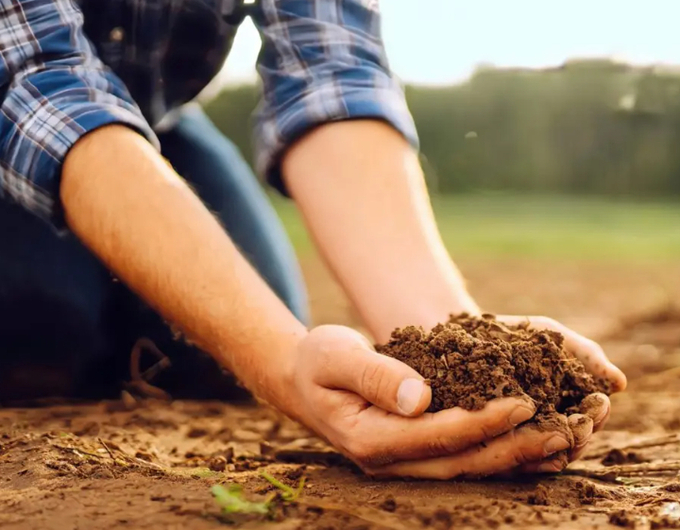June 16, 2025 | 23:42 GMT +7
June 16, 2025 | 23:42 GMT +7
Hotline: 0913.378.918
June 16, 2025 | 23:42 GMT +7
Hotline: 0913.378.918

This finding sets the stage for a game-changing shift in agriculture.
The study was focused on “mini-livestock,” including the humble yellow mealworm, the bouncy banded cricket, and the robust black soldier fly.
Often underestimated, these insects are being cultivated as an alternative protein source for animals, playing a crucial role in the shift toward more sustainable agricultural practices. However, what they leave behind may be just as valuable – if not more – than the protein they provide.
Insect frass is a nutrient-rich byproduct of insect farming. In contrast to regular manure, frass is inherently pathogen-poor and rich in nutrients such as nitrogen, phosphorus, and carbon.
The nutrients in insect frass make it a promising organic fertilizer that can augment soil health and plant growth without reliance on synthetic fertilizers. This finding sets the stage for a game-changing shift in agriculture.
In previous studies, a team of researchers led by the United States Department of Agriculture (USDA)’s Agricultural Research Service (ARS) set out to explore the potential benefits of insect frass.
The results showed that frass can compete with fossil fuel-based fertilizers with its higher carbon and nitrogen content, while being less pathogenic than other animal manures.
Collaborating with partners from the University of Arkansas System Division of Agriculture, the ARS team further studied the potential of frass as an organic fertilizer when used as a soil amendment.
The researchers embarked on an intense two-year field study. The results were quite astounding.
Yellow mealworm frass demonstrated impressive capabilities. It managed to double the soil’s carbon content while tripling its nitrogen content.
This was significantly higher compared to other sources such as poultry litter and ammonium nitrate. Most importantly, the frass-enriched soil produced similar crop yields and carbon dioxide emission rates.
“Insect frass substantially improved soil fertility which showed its ability to be used as an alternative to inorganic fertilizers,” said Amanda Ashworth, a soil scientist at the ARS Poultry Production and Product Safety Research Unit in Fayetteville, Arkansas.
“This is important since insect farming is on the rise and circular agricultural systems (agricultural by-products that are recycled back into production systems) can be sustainable avenues for growing foods in the future.”
The question is, are we ready to embrace this change? As the world witnesses an increased demand for sustainable protein sources, the insect farming industry is experiencing a surge in growth.
According to the Global Edible Insects Market Forecast to 2030 report, the industry is set to grow at an annual pace of 28%, with an anticipated market value of $8 billion U.S. dollars by 2030.
Insect frass stands as a powerful catalyst for change, moving us towards a greener future. It promises a sustainable alternative in agriculture – one that makes use of waste to enhance our environment and feed our growing populations.
The research shows that insect frass is not just waste – it’s a potential goldmine, waiting to be discovered and harnessed.
As the agricultural industry shifts toward more eco-friendly practices, insect frass is being recorgnized as an important player in regenerative farming.
In contrast to traditional fertilizers, which can degrade the soil and contaminate water, insect frass promotes microbial activity and improves soil structure.
This natural byproduct not only replenishes essential nutrients but also supports long-term soil health by promoting beneficial bacteria and fungi.
With fears of fertilizer shortages and environmental damage due to synthetic alternatives looming, insect frass presents a promising alternative.
So far, farmers who have embraced this organic amendment are reporting greater crop resilience, reduced chemical input dependence, and soil biodiversity improvements.
As research continues, insect frass may ultimately transform the way food is grown, making agriculture not only more productive but truly sustainable.
earth

(VAN) The working delegation from the Ministry of Agriculture and Environment conducted an important trip to the Netherlands to strengthen strategic partnerships and sustainable development in the agricultural sector.

(VAN) The letter ‘A Plea from the Ocean’ not only evokes emotion but also awakens the human conscience to the responsibility of protecting life on Earth.

(VAN) The Department of Agriculture in South Africa has announced the country’s first mass vaccination of poultry to prevent local birds from contracting avian influenza.

(VAN) Establishment of the Mekong Delta Regional Agricultural Linkage Center, aiming for a closed value chain, deep processing, trading platforms, and international market connectivity.

(VAN) Gia Lai province has recently recorded 460 rare species of animals and plants, contributing to forest conservation and biodiversity planning in the region.

(VAN) Ms. Caroline Beresford, New Zealand Ambassador to Vietnam, expressed confidence that agricultural cooperation between Vietnam and New Zealand will develop sustainably, be climate-resilient, and promote gender equality.

(VAN) Vietnam reaffirms its commitment to international cooperation in fostering sustainable and responsible fisheries while ensuring resilient livelihoods for small-scale fishing communities.